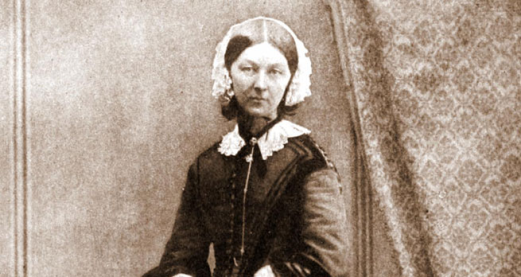It's no secret that our hospitals are short of staff and do not have enough equipment or sufficient room in the United Kingdom. No single ‘magic formula’ will address all of the staffing shortages. Some rightly argue that these problems are due to lack of adequate funding in the NHS, as well as for social care. I trained to become a nurse in the NHS, I have worked in a range of hospitals, and I am certain there is truth to the funding shortfalls. This was most evident to me when I supported a partner with acute and life limiting conditions and complex care needs, and experienced a range of NHS services from a family member’s perspective.
It’s not just staffing issues that need addressing. Innovative practices, such as robotics for the treatment of individuals with prostate cancer, have the potential for positive and profound impact on many, yet are likely to be limited to the few patients who have the fortune of living close to where the practice has been developed and used, or have the opportunity for referral to specialist services. This we refer to as the ‘postcode lottery’ of health services, which persist and result in inequities of access and opportunity around treatment choices. No easy answers or quick wins here!
1. Size matters - the NHS is the fifth largest employer in the World, we should exploit that
But what about the NHS workforce? Is there really not enough staff?
A report from the Nuffield Trust published May 2019 found that the NHS was the fifth largest employer in the world with 1.5 million staff - following closely behind McDonalds with 1.9 million employees worldwide. Of the 1.5 million NHS staff in September 2018, 306,996 were employed as Nurses or Midwives. However, in the period from July through to September 2018, more than 40,000 vacancies were advertised just for nursing and midwifery. In the Thames Valley area, for example, there was an almost 12% deficit in NHS clinical staff vacancies; the bulk across nursing and midwifery. Focusing solely on England, these vacancy factors are cause for concern.
At the same time, the Health Foundation (2020) has shown that student applications to nursing from 2014 - 2018 showed an average decline of 43%.
Taken together, it is not hard to see how practitioners struggle to meet demand. Is there an answer for this? Significant efforts have been invested to market nursing through campaigns, as shown in the video below, to recruit new nurses. The importance of NHS recruitment campaigns shows the work of frontline workers in the NHS, such as nursing. I am hoping that as a result, there might be some of you reading this who feel motivated to pursue the options available to work as a nurse. Who knows, this could be the first step to something positive for yourself.
2. Support those with an interest in healthcare to train to become qualified nurses working in the NHS
Despite the strength of these messages, nursing needs to compete against other professional options, many of which may be more attractive than nursing involving less unsocial hours working practices or risks. As a nurse of many year’s standing, I wouldn’t hesitate in entering the profession again, or indeed recommending to others the value of nursing as a career. To be able to share experiences with our patients at their highest and lowest points is a real privilege and life changing.

Tapping into the existing talent within the healthcare support workforce may go some way to filling the nursing shortfall. Flexible or part-time routes, or apprenticeships, which enable support staff to train and progress into nursing roles while they continue to work, can help attract career changers or those who did not have the opportunity to study through a traditional university route.
We must also consider the funding available to nursing students. In England, the nursing bursary was scrapped in 2017 meaning nursing students must now access the same funding and student loan options as other students. However, in late 2019, the government announced that from September 2020 nursing students will be eligible for a grant of £5,000 a year which they would not have to pay back, with up to £3,000 further funding available for eligible students. This might attract more applicants but growth in student numbers is constrained often by the lack of practice learning opportunities available for students. Even if the 40,000 vacancy deficit of 2018 has diminished, it is unlikely that increasing the number of students is likely to have significant impact - at least in the shorter term – and retention of staff is therefore another important factor.
3. Upskilling the healthcare workforce - The role of Nursing Associates and Advanced Clinical Practitioners
One recent initiative that should impact on care in the NHS is the Nursing Associate role implemented to date in England only. Nursing associates work with healthcare support workers and registered nurses to deliver care for patients and the public. Over the last two years there has been government pressure alongside workforce efforts to create and promote this new role.
Although there has yet to be substantial evaluation of the impact of Nursing Associates on care delivery, I feel confident that their impact will be felt across England. For once, as frontline workers those supporting the registered nurse are accessing substantial educational and training provision expected for their roles. Investing in education and training should see nursing associates being able to respond appropriately to needs using person/family-centred practices.
In addition, the NHS Long Term Plan (2019) highlights the importance of Advanced Clinical Practitioner roles in meeting current and future workforce demands. Nursing staff progressing into advanced clinical practitioner roles will be enabled to take on additional responsibilities within their scope of practice, such as prescribing for and diagnosing service users. This will increase operational efficiency while also encouraging retention of nursing staff by encouraging clear routes to progress their careers.
Finally, therefore, we need to have the courage to review role expectations; to ask people to step up and practice to their level of ability but always remember the need to invest in appropriate training, education and supervision of the workforce so that the NHS can continue to deliver the quality of care that others expect of them.







Rate and Review
Rate this article
Review this article
Log into OpenLearn to leave reviews and join in the conversation.
Article reviews